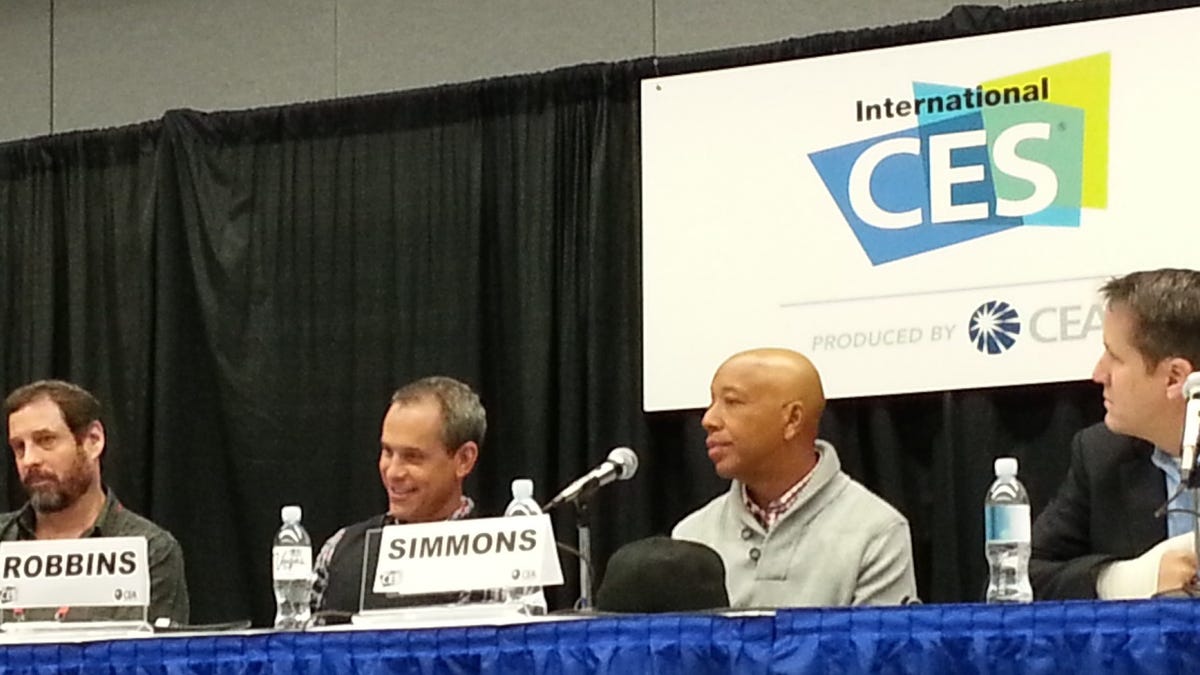From YouTube to prime time: TV honchos look to new media
Successful content creators at CES this year say TV show producers shouldn't abandon TV altogether but instead should take advantage of the growing number of viewers on mobile and the Internet.

Lightning has struck more than once for Russell Simmons -- the man created successful TV shows like Def Comedy Jam and Def Poetry Jam and made himself an entertainment mogul -- but he knows he's losing out now because he's not creating content for every device.
"I'm really late, but I came to the party and there's still a block, there's still a hole in the market," he told an audience at CES 2013 today.
Simmons is gearing up to build a new network with new stars -- plucked from YouTube fame -- and bring them to the mainstream, and he's inspired by their ability to buck the traditional TV model and go at it on their own.
That was a common thread among the content producers sitting on the "Anytime, Anywhere Content" panel at CES: YouTube viewers and mobile viewers are markets that can't be ignored. The panel included the leaders of successful companies that have figured this out. Machinima, a successful content creator that targets gamers and a segment Machinima CEO and Chairman Allen DeBevoise calls "the lost boys": the audience that no longer watches traditional TV, save for hyperpopular geek content like "The Walking Dead" or "Game of Thrones." Instead they've gone for online shows, helping Machinima reach a billion views per month on mobile devices, DeBevoise said.
DeBevoise was quick to point out that TV shouldn't be left out of the picture entirely, since different viewers will choose to watch different content on different platforms. He pointed to the success of hybrid services like Roku, which recently announced that it's reached 700 channels and is adding more service partners. Steven Shannon, general manager of content services for Roku was also present and he agreed with DeBevoise. Shannon said more people may be accessing content through mobile, but TV viewers spend way more time -- about six hours a day on average -- watching shows.
Then there's successful show producer Brian Robbins, who's collaborating with Simmons on new content. Robbins has made programs for networks like Nickelodeon and the WB, and he recently created Awesomeness TV, a You Tube network aimed at kids, tweens, and teens. He was inspired by self-made YouTube stars, young kids who rack up millions of followers. The 8-week-old site has already attracted millions of viewers, Robbins said.
Simmons is giddy over those YouTube stars. He said he just signed Spoken Reasons, a comedian whose homemade stand up and spoof videos have gone viral, and he's ready to make him a big star. He's shooting something with Robbins that he hopes will be distributed across all platforms and be marketed in a big, traditional way. While traditional advertising still needs to catch up on the mobile front, that doesn't mean it can't be used in addition to new media, he said.
"When (Spoken Reasons) comes from YouTube, I'm going to put him everywhere. He's going to sell every sneaker and every pair of underwear that he can sell," Simmons said.

